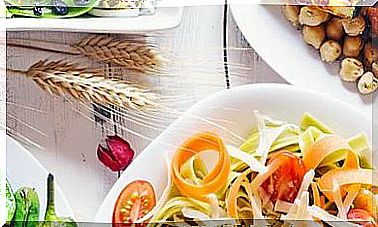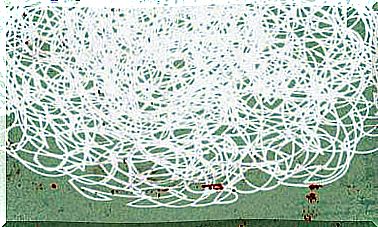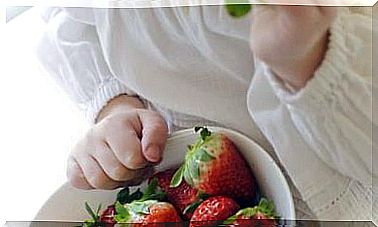9 Keys To Having A Healthy Diet In Summer
With the heat, the body’s needs change: we are more thirsty and less hungry. You have to take advantage of seasonal, nutritious, light and juicy foods.

In summer the landscape offered by the orchards and fruit trees is a real spectacle.
The fruits and vegetables of the season display their color palette, their tempting textures, their exquisite aromas and their intense flavors, for the enjoyment of the senses, especially the palate.
That is why almost no one can prevent their mouth from watering when they contemplate a juicy peach, a slice of watermelon or a refreshing glass of gazpacho.
Unlike what happens in winter, when a greater caloric intake is needed to maintain body temperature, now the body asks for foods that are overflowing with freshness, moisturizing and light, which are precisely those that the summer season offers.
With heat, the production of sweat increases to balance the internal temperature, which causes the loss of not only water but also minerals and trace elements. Hence, salads, juices, cold soups, smoothies …
Thus, fruits and vegetables appear in summer to provide what the body needs: water in its most assimilable and organic form, supplemented with vitamins, minerals and sugars that fill with energy and well-being.
Not forgetting their richness in antioxidants, which make them great allies in summer by compensating for the release of free radicals caused by the sun.
The beta – carotene, orange pigment precursor of vitamin A, is one that should therefore not miss besides accelerate tanning of the promoting melanin synthesis, it acts as a natural filter UV.
Carrot, apricot, peach, tomato … offer this and other nutrients. Enjoying them when they are at their optimum point and at a good price is a real pleasure and a gift for health.
Here are some keys to eating well in summer.
1. Choose fresh and light dishes
With the heat, dietary needs change : people tend to be less hungry and thirst increases. However, it is necessary to continue nourishing and for that you have to know how to choose foods well and how to eat them.
In summer, stews and hot preparations, which are often high in calories, are not so appealing. In addition, the process of digestion generates heat and, the more elaborate the dish, the heavier it is to digest.
It is time to give prominence to salads, salads, carpaccios, gazpachos, creams … that is, to nutritious dishes but also rich in water, fresh, light, easily digested and with little fat, as these are highly energetic reserve substances that guarantee, among other things, the production of heat.
By prolonging digestion, high protein or fatty dishes enhance the drowsiness typical of summer days. “The least advisable are saturated fats as they provide an excess of calories and a low nutritional value”, qualifies Mercedes Blasco, an expert in natural nutrition. Hence, it is recommended to moderate, for example, the consumption of ice cream.
On the other hand, essential fatty acids should not be lacking in the diet , which combat desiccation and improve skin hydration in summer. They are found in nuts and seeds, which can be sprinkled on salads or enjoyed in the form of plant-based drinks.
2. Prefer raw foods
Instead of resorting to stews and fatty dishes, the summer assortment of vegetables is recommended : aubergine, pepper, tomato, carrot, lettuce, apricot, melon, nectarine, cherry, watermelon, plum, peach …
To take full advantage of the potential of many of these foods, it is best, whenever possible, to eat them raw.
Any type of cooking, no matter how moderate, will alter the constituent elements of the food and its nutritional quality will be inferior ; although some people with digestive problems will tolerate cooked vegetables better.
The Dr. Pedro Rodenas, naturopath, proposes ” to start the main meal with salads and sprouts as a way to integrate them into the diet and eat fruit between meals, separate meals, to better absorb nutrients and prevent intestinal discomfort “.
But although fruits and vegetables are more appealing and should be the protagonists, “we must not forget the basic elements of a balanced diet, common to all seasons of the year and which can now be prepared in different ways,” says Mercedes Blasco.
This is the case of cereals and legumes : salads with brown rice or quinoa, couscous or bulgur wheat taboules, and polenta or millet timpani give a lot of play. And the same can be said for salads with chickpeas, beans, lentils or green soybeans, which are mixed with a variety of raw vegetables to make a complete dish.
3. Do not fall into the most common mistakes
The dishes mentioned above are fresh options that help maintain the intake of calories and nutrients that the body needs to function and maintain health.
Something that many forget, because “the relaxation typical of vacation days is often associated with the abandonment of good eating habits maintained throughout the year,” says Dr. Guadalupe Blay, a nutritionist doctor.
” Disorder in meal times and food selection, skipping breakfast and snacking excessively, taking too much ice cream and soft drinks, snacks and not very nutritious foods are the most frequent mistakes in summer and that should be avoided,” he remarks.
Holidays seem ideal to put Slow Food into practice, a philosophy that claims the pleasure of eating slowly.
From breakfast to dinner it is possible to regain the taste for eating without haste, calmly tasting each food to discover all its nuances of texture and flavor, and taking time to resume activity with a pleasant after-dinner.
4. Go for gentle cooking
Although the proportion of raw foods in the summer diet must be higher, it is a question of combining them with light cooking, “especially steam, which is very digestive and is the one that least alters the nutritional value and flavor of the product”, says the Dr. Ródenas.
This will avoid the intestinal disorders typical of these days. In addition, opting for light culinary techniques will counteract the ambient heat.
Plancha, papillote, wok … they also require very little fat and promote digestion, while minimizing the loss of nutrients.
5. Moderate the salt
It is a good time to experiment and enhance the flavor of dishes with aromatic plants, as overusing salt can cause fluid retention.
The lemon brings also a refreshing touch to any recipe, and vinaigrettes based oil extra virgin olive oil , vinegar and chopped almonds or hazelnuts are a success.
In any case, it is about promoting the digestive process, so in summer it is more advisable than ever to distribute food in, for example, five small and light meals.
It must be taken into account that copious and high-fat meals make a digestion cut more feasible . If during this process there is a sudden change in temperature (when going into the sea or the pool) the blood in the digestive tract has to go to other organs to counteract the effect of cold water on the body surface.
To prevent this, it is important not to bathe in deep areas with digestion in progress (wait between two and three hours) or enter the water suddenly, but gradually, especially if you have been in the sun a lot or have exercised. It is advisable to take a warm shower beforehand or wet your wrists and neck.
6. Avoid very cold foods
Food and drinks that are too cold can also cause the dreaded digestion cut.
Thus, even though the outside temperature is very high, “it is preferable to take them warm or moderately cool – insists Dr. Ródenas – to avoid causing too strong a temperature shock with the body”.
In addition, given that many hot countries resort to infusions and rather hot teas to cause perspiration and cool off, experts agree that “it is not so clear that the colder, the more refreshing”.
The Traditional Chinese Medicine also advises against temperature extremes in eating and drinking, and stresses the importance of “finding the balance between environmental temperature and internal, ” says Dr. Daniel Mené, because although it seems that the body craves cold To counteract the heat, for people with organ failure or weakness, the consumption of salads, raw foods and cold drinks at any time of the year may be contraindicated.
And not only for health, but also for pleasure: “Food and beverages should be taken at a temperature where they can be savored, that is, keep it in the mouth for a few moments to enjoy its flavor and enrich it with the ptyalin enzyme”, concludes Blasco .
7. Hydrate properly
To cool off, the body sweats and loses water. If under normal conditions the loss is estimated at 1.5 liters per day, an amount that is recommended to be replaced through the water in beverages and that contained in food, to this must be added the losses due to sweat in summer.
For this reason, summer requires extreme precautions to maintain an adequate supply of this essential liquid, especially in the case of children and the elderly, who are at greater risk of dehydration, or also if they exercise.
Thus, it is essential to drink throughout the day, better a small amount often than a lot at once.
Thirst is an indication of the body’s need for water, but when it occurs often, 1% of body weight has already been lost in the form of water.
Pure water is the best drink and taken in sufficient quantities is enough to replace all its loss. However, “when you sweat, in addition to losing more fluid along with the water , mineral salts are lost that also need to be replaced,” explains Dr. Ródenas.
Therefore, although it is essential to drink water, in summer you should also increase the consumption of natural juices, remineralizers and rich in vitamins and sugars.
In addition, he insists that “it is above all that it is the diet that hydrates the body rather than flooding each meal with liquid, as it makes digestion difficult.” Increasing the consumption of fruits, salads, soups … ensures a good supply of water and the diversity of flavors can help an adequate daily fluid intake for those who find it difficult to drink water.
“Symptoms that signal dehydration are, among others, thirst, dry mucous membranes and skin, and decreased amount of urine,” explains Dr. Blay. If it occurs, “it is about drinking small sips of water enriched with mineral salts or glucose or isotonic preparations.”
When doing great sports efforts, a homemade rehydration solution can be prepared with:
- 1 liter of mineral water
- 5 tablespoons of sugar
- 3/4 of tablespoon of salt
- 1/2 tablespoon of baking soda
- juice of 1 or 2 lemons.
Summer vegetables allow you to prepare countless juices. It is preferable, of course, to take them freshly blended or squeezed so that they preserve their properties to the maximum, and savor them slowly, in order to mix with the salivary juices before going down to the digestive system. Thus, they feel better.
Infusions also offer possibilities for making soft drinks: mint is one of the most effective against thirst, and the same happens with lemon balm, to which its peculiar aroma allows adding citrus segments.
The vegetable drinks (rice, oats or soybeans) provide quality nutrients, including vegetable proteins are, with few fats (unsaturated) and sugar, if you prepare at home.
On the other hand, soft drinks, so frequent in summer, tend to have a lot of sugar. Those that contain 10% or more sugars cause more thirst in the long run because they increase the concentration of solutes in the internal environment, which requires additional shots of water or herbal teas to dilute them again.
If, in addition, they have gas, they can hinder the digestive process, by delaying gastric emptying, and causing flatulence, among other discomforts.
On the other hand, ” alcoholic beverages increase water losses through the kidney, which is why they are dehydrating, and they dilate blood vessels, something not advisable if one takes into account how dilated the body is already in summer due to the heat” says Dr. Ródenas.
8. How to prevent summer digestive disorders
A good diet and proper hydration are key, but in summer, precautions must also be taken to avoid intestinal problems, such as gastroenteritis, one of the most frequent at this time of year.
It is essential not to drink water for which there is no guarantee of potability, regardless of whether it has a healthy appearance (mountain streams, natural springs, etc.).
As for food, it is advisable to wash and disinfect fruits and vegetables before taking them but not before storing them, since this favors the multiplication of microorganisms in areas that inevitably remain damp.
The best way to protect yourself is, in addition to selecting everything you eat and drink, to follow some simple measures (especially if you travel):
- Wash your hands frequently, especially before and after eating, when handling food, going to the bathroom, etc.
- If you eat in catering establishments, try to do it in places that offer guarantees of cleanliness and with clean staff.
- With drinks, do not drink ice that has not been prepared with safe water.
- Do not consume perishable foods that have not been refrigerated and reject prepared foods that are not protected from the outside environment.
- Pay attention to pastries and ice creams since, due to their ingredients, they can be the source of diseases. Also be careful with sauces and prepared foods.
- Meals must be properly cooked and served at the proper temperature.
- Prefer to peel the fruit personally and not risk it with raw vegetables. Salads can be dangerous if they haven’t been washed well. Therefore it is better not to ask for them.
- Avoid food from street stalls, which usually do not have sufficient hygienic measures.
- Buy food in good condition and in authorized places, pay attention to the labeling of the products with their expiration date or preferred consumption and follow the recommendations for storage, conservation and use.
In case of suffering from gastroenteritis, Dr. Pedro Ródenas indicates an astringent diet for one or two days based on: chamomile infusions with a dash of lemon; grated and oxidized apple (4-5 minutes at room temperature until brown); and white rice boiled with carrots or with honey and cinnamon.
9. Adapt the menu to the season: seasonal food without getting bored
The summer diet doesn’t have to be monotonous.
The foods offered by this season, juicy, light and rich in vitamins, are very versatile and allow you to prepare original dishes easily and quickly:
- Soups and cold creams : cucumber, watermelon and tomato, the traditional gazpacho … They prevent dehydration and provide minerals and vitamins that act as antioxidants when exposed to the sun.
- Salads: with arugula, purslane, lettuce, tomato, cucumber, pepper, carrot, beet, onion … which can be completed with corn, pasta, rice or potatoes, legumes, tofu or seeds. Due to its richness in water, vitamins, minerals and fiber, they hydrate, refresh and purify the body, protect the skin from the sun and prevent constipation.
- Vegetables: steamed, raw, grilled, baked … they constitute a vitamin filling for the sandwich and a tasty garnish for any dish.
- Natural soft drinks : lemon juice with mint is a particularly refreshing drink . Alfalfa leaves added to lemon and orange juices, or even apple and pear, provide not only a beautiful emerald color but also a sweet and fragrant flavor.
- Lighter ice cream: sugar can be substituted for milder sweeteners, such as apple concentrate, some cereal molasses, honey or fructose. And substitute the cream for vegetable milks (almonds, soy or oats).
- Plant milks: to prepare a plant milk of tigernut, sesame or almond, it is enough to let the seeds or nuts marinate overnight, crush them, strain them and sweeten them with honey or fructose.
- Fruit slushies : all you need is fruit, which is blended, and crushed ice. Everything is mixed well and you are ready to drink. A healthy soft drink with no added sugar.
- Purifying punches: they are prepared with acidic fruits, such as plums, citrus fruits, strawberries or raspberries, to which cinnamon, ginger or grated or whole citrus peels can be added.
Books to take care of you this summer
- Vegetarian cuisine for the four seasons; Mercedes Blasco, Ed. Ocean-Amber
- Do we know how to eat ?; Dr. Andrew Weil, Ed. Urano
- Super juices; Claudia Antist, Ed. Ocean-Amber









